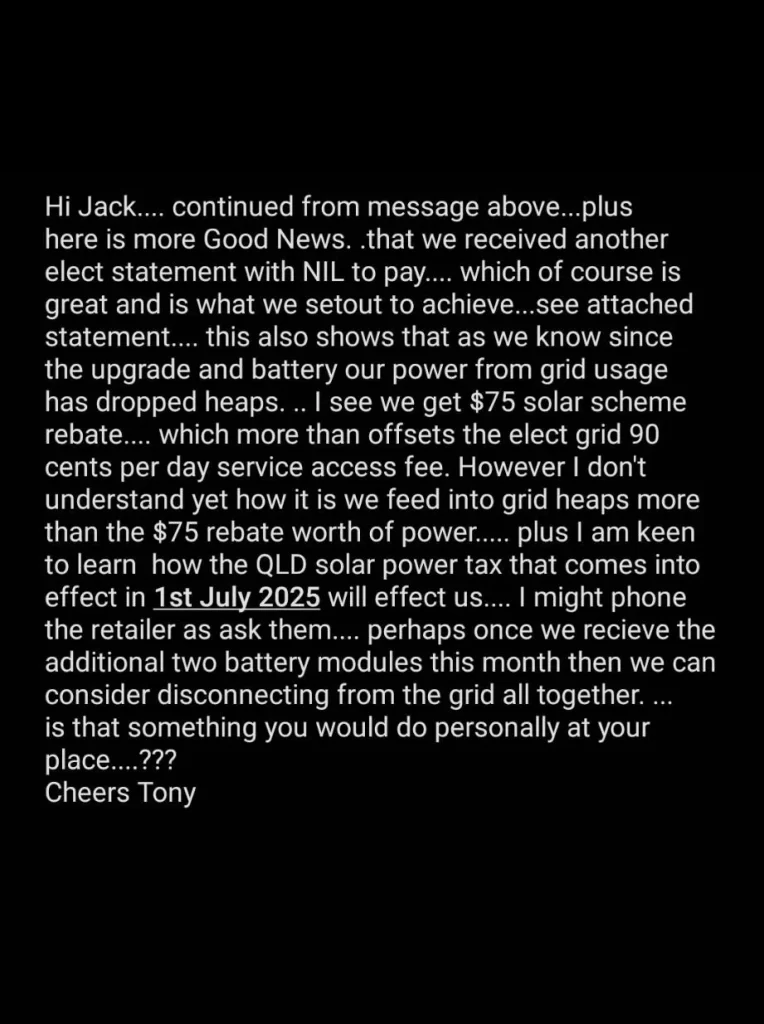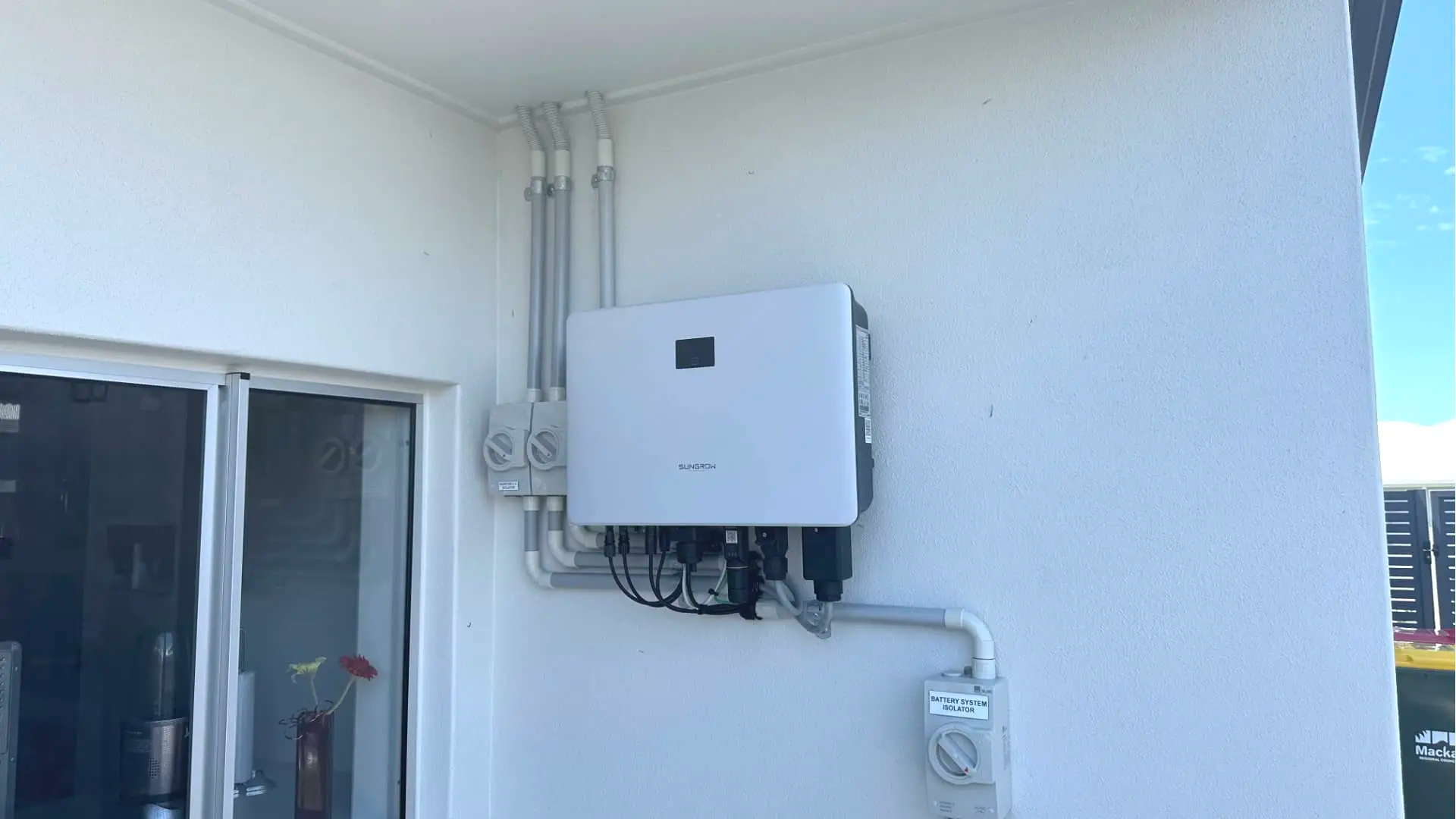Solar panels come with many different parts, all of which are important in some way but many of which will be confusing to you at first.
One of the most important parts of your solar system will be your solar inverter, but it’s also a component that many people have never heard of before. In this article, we’ll explain what a solar inverter is, why it’s so important, and the different types of solar inverters out there.
What Is a Solar Inverter?
A solar inverter has the essential task of converting electric power from Direct Current (DC) to Alternating Current (AC). The sun provides energy to your solar panels, which in turn produce Direct Current. For off-grid (stand-alone) inverters, this DC power is stored in a battery.
In order for you to use this power, it needs to be converted to Alternating Current, which is what your appliances use. Solar inverters help you utilize solar energy efficiently, saving you money and optimizing your solar setup.
Solar inverters also communicate your solar data to the installer (via remote monitor) and homeowner (via home computer). Many inverters also directly display your system’s output power, voltage, and error codes.
What Are The Main Types of Solar Inverters?
There are a few different types of solar inverters out there, and each comes with its own pros and cons. Let’s take a look at some of the main types.
String Inverters
The most common, and standard, type of inverter is the string inverter. This involves one centralized inverter that manages the entire solar panel system. For most solar customers, this is the best option, since it’s cheap and works fine provided your solar system is not disturbed by shade from things like trees or other buildings.
The challenges with string inverters tend to arise when one or more panels are obstructed or damaged. This is because solar panels with string inverters are only as effective as the least effective panel. If one of your panels isn’t producing much energy, neither will the rest of them.
In these cases, the productivity of your overall system can decrease, and it can also be hard to pinpoint the problem since you can’t individually monitor panels with this type of inverter.
That said, string inverters are the cheapest option and if your panels get uninterrupted sunlight this option is likely to be sufficient.
Microinverters
Microinverters are small units installed under every panel in your system. This allows for more granular control of your panels — each panel can function independently of all the others, and any problem with a single panel won’t seriously impact your overall solar system.
With micro inverters you can monitor the performance of each solar panel individually, allowing you to accurately pinpoint any issues with your system like a single damaged or defective panel.
It’s also easier to expand your solar panel system with microinverters since you can simply add extra panels with their own inverters — unlike string inverters which may require you to install an additional central inverter.
On top of that, microinverters can be shut down rapidly, allowing you to comply with rules in many areas that require solar panels to be shut down quickly, for example, if emergency services have to access your rooftop safely.
The main downside to microinverters is cost, as they’re quite a bit more expensive than string inverters. If your panels face different directions and receive different amounts of sunlight, a microinverter may be worth the cost, but otherwise, it may be hard to justify.
Battery Inverters
Battery inverters allow you to keep your solar batteries separate from the rest of your solar panel system by running through a different inverter. They’re a good choice if you decide to install a battery after your solar system has already been set up, and give you more control over how your system operates.
We can Help You Choose The Right Solar Inverter
At SnapSolar, we have extensive experience helping our customers in Queensland install and maintain the right solar panel system for them and their needs. We can help you do the same, including helping you decide on the right type of inverter. Contact us to find out more.
Get Your FREE Quote Today & Save $$$!
Contact our team today and we'll get back to you as soon as possible to discuss your solar needs!
Get a FREE QuoteRelated Articles.

What Size Solar System Do I Need?

Jackson Wyer

How Our Client Eliminated His Electricity Bill To $0

Jackson Wyer

How Much Energy Does a Solar Panel Produce?

Jackson Wyer

